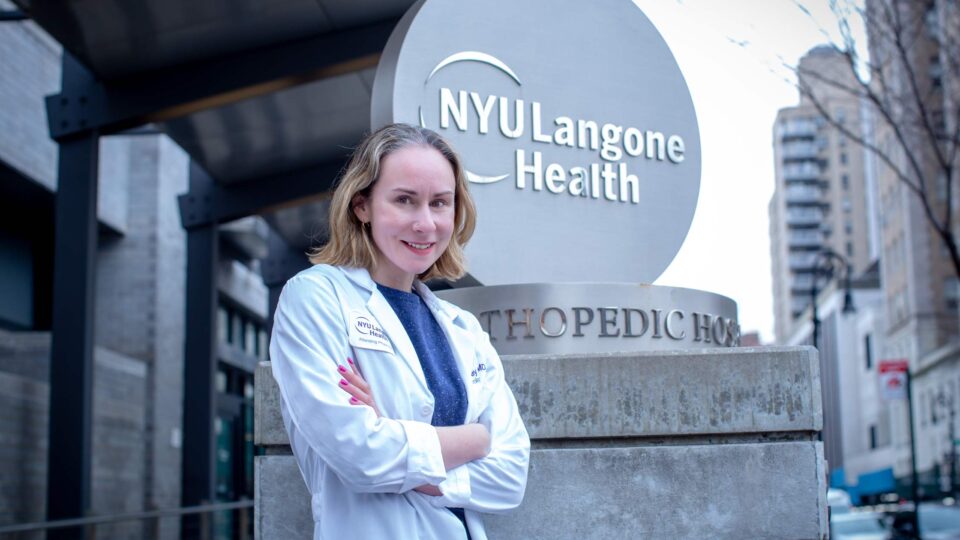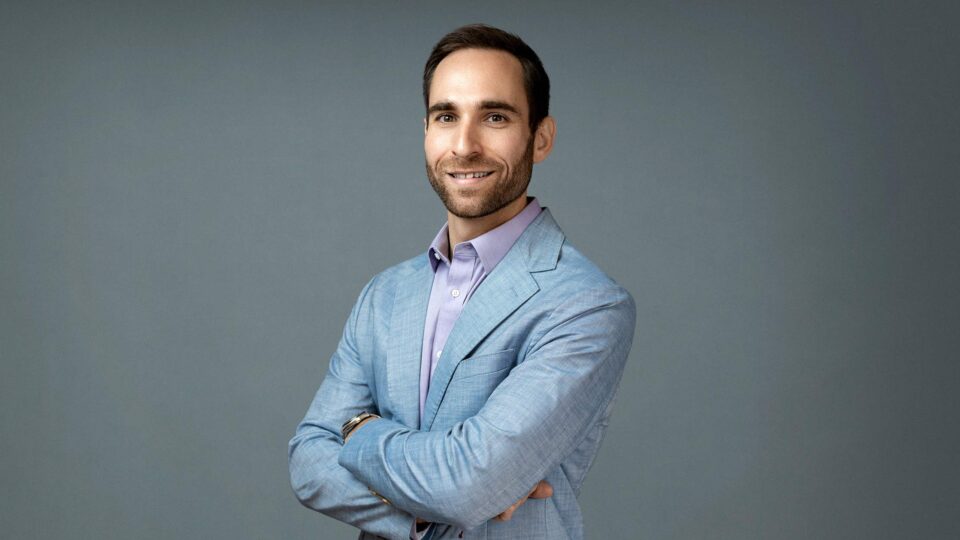NYU Langone Insights on Psychiatry is a unique podcast by clinicians, for clinicians, that connects cutting-edge discoveries with practical takeaways that can help you improve your patients’ care today.
In each episode, host Thea Gallagher, PsyD, a clinical assistant professor and the coordinator of digital mental health, outcomes, and wellness in the Department of Psychiatry at NYU Grossman School of Medicine, and a nationally recognized specialist in mental health illnesses including obsessive-compulsive disorder and anxiety, explores a unique topic with a guest expert who is pursuing the most critical and compelling questions at the cutting-edges of their research area.
“It’s an honor to help communicate the kinds of meaningful insights we can all use in this fast-moving profession.”
Thea Gallagher, PsyD
“Insights on Psychiatry is part a look at the future of where psychiatry is headed and part a practical guide to improving the treatment we provide today,” says Dr. Gallagher. “It’s an honor to converse with such fascinating group of peers about their research and to help communicate the kinds of meaningful insights we can all use in this fast-moving profession.”
Welcome from Our Leadership
“It is with great pleasure that we welcome NYU Langone Insights on Psychiatry into our educational programming. This series hosted by Dr. Thea Gallagher, one of our communication leaders, features clinical thought leaders from across our department discussing their passionate work with patients and in their specific area of research. We view these discussions as a way of your being able to meet and greet our experts over a virtual cup of coffee. We know you will find them to be lively, informative and enriching.”
— Charles R. Marmar, MD, Peter H. Schub Professor and Chair, and Lenard A. Adler, MD, Vice Chair for Education, Department of Psychiatry
Listen Now
Listen on Apple Podcasts Listen on Spotify Listen on Google Podcasts Listen on Overcast Listen on Amazon MusicRecent Episodes
SEASON 2, EPISODE 12: APRIL 15, 2024
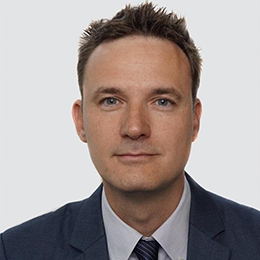
For the final episode of Season 2, we’re joined by Dr. Samuele Cortese, Professor of Child and Adolescent Psychiatry at the University of Southampton (UK) and Adjunct Full Professor at NYU Langone. Together we explore the intersection of pediatric ADHD and precision psychiatry, including the disorder’s genetic underpinnings and evolving treatment options.
00:00 Introduction
00:54 Dr. Cortese’s Research Journey
02:11 Global Perspectives and Challenges in ADHD Treatment
03:51 Advances in ADHD Diagnosis and Treatment
06:41 Role of Genetics in ADHD
09:33 Precision Treatment and Stratification
12:17 Treatment Adherence and Shared Decision-Making
23:55 Connection Between ADHD and Obesity
28:39 Non-Stimulant Alternatives and Future Directions in ADHD Treatment
32:16 Non-Pharmacological Treatments
37:28 Advice for Clinicians and Closing Thoughts
SEASON 2, EPISODE 11: APRIL 09, 2024
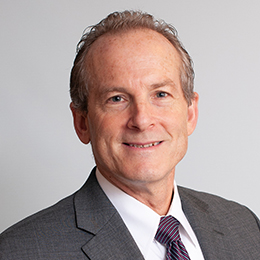
Dr. Timothy Wilens is a Professor of Psychiatry at Harvard Medical School and Chief of the Division of Child and Adolescent Psychiatry at Massachusetts General Hospital. His research interest include the relationship between ADHD, bipolar disorder, and substance use disorders; ADHD pharmacotherapy; and stimulant medication misuse.
On this episode, Dr. Wilens discusses the importance of early diagnosis and intervention in ADHD, as well as its lifelong implications. He takes us through the evolution of ADHD treatment, from behavioral therapies to modern pharmacological interventions, including stimulant and non-stimulant medications, and the application of digital therapeutics. The conversation also touches on the stigma surrounding ADHD, the role of precision medicine, and the future of ADHD research.
00:00 Introduction
02:50 Evolution of ADHD Treatment
04:43 Stigma and Misconceptions
12:18 Importance of Early Intervention
15:02 ADHD Symptoms and Treatment Approaches
30:02 Addressing Concerns About Stimulant Medications
35:50 Navigating the Complexities of ADHD Medication
41:22 Future of ADHD Research and Treatment
43:20 Conclusion
SEASON 2, EPISODE 10: APRIL 02, 2024

Dr. Ira Glick is Professor Emeritus of Psychiatry and Behavioral Sciences at Stanford University Medical Center, where he has served as director of the Schizophrenia Research Clinic. On this episode, he discusses his research journey, which began in the 1960s and followed a shift from psychoanalysis to biological psychiatry. He addresses the broken social safety net for schizophrenia patients, including the controversial topic of treating some patients against their will, as well as the challenges of medication adherence, and the stigma surrounding severe mental illness.
00:00 Introduction
00:49 Evolution of Schizophrenia Treatment
04:34 Science Behind Schizophrenia Medications
07:39 Addressing the Public Health Challenges of Schizophrenia
11:15 Stigma and Misunderstanding of Severe Mental Illness
21:44 Innovative Treatment Approaches and the Future of Schizophrenia Care
31:36 Importance of Public Health Interventions and Political Will
35:45 Closing Remarks and Future Directions
SEASON 2, EPISODE 9: MARCH 26, 2024

Dr. Christin Drake is Clinical Associate Professor and Vice Chair of Diversity and Equity in the Department of Psychiatry at NYU Grossman School of Medicine. On this episode, Dr. Drake discusses ongoing efforts to improve mental health equity, including by improving psychiatric services for underserved groups, gathering better data, and boosting diversity among health care providers. She also discusses the importance of integrating mental health care into perinatal services and challenges the conventional wisdom about stigma toward mental health care in the Black community.
00:00 Introduction
00:55 Dr. Drake’s Vision for Equity in Mental Health Care
03:46 Addressing Racial Inequities in Psychiatry: A Critical Conversation
04:45 The Importance of Representation and Mentorship in Psychiatry
10:32 Building Foundations for Health Equity: Data and Systemic Change
22:16 Integrating Psychiatric Care into Perinatal Health
33:31 Rethinking Mental Health Stigma in the Black Community
38:08 Future Projects and Closing Thoughts
SEASON 2, EPISODE 8: MARCH 19, 2024
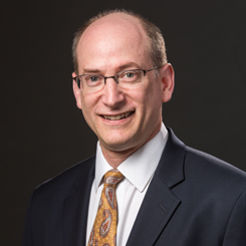
Dr. John Krystal is Chair of Psychiatry at the Yale School of Medicine. He is best known for leading the discovery of the rapid antidepressant effects of ketamine, which paved the way for the first major new antidepressant drug in decades. Here, Dr. Krystal talks about what we’ve learned in the five years since esketamine nasal spray was approved by the FDA, including efforts to predict treatment response, dosage and frequency, safety, and long-term impact. He also discusses advances in our understanding of alcohol use disorder and weighs in on the search for psychiatric biomarkers.
00:00 Introduction
01:01 Dr. Krystal’s Research Journey
03:32 What We’ve Learned Since Esketamine’s FDA Approval
05:59 Avoiding Misuse
08:11 Optimizing Dosage
16:25 Predicting Treatment Outcomes
24:17 Ketamine vs. Psychedelics
25:48 Advances in the Treatment of Alcohol Use Disorder
32:33 Precision Psychiatry and Personalized Treatment Approaches
39:49 Psychiatric Biomarkers
41:03 The Future of Psychiatric Research and Treatment
SEASON 2, EPISODE 7: MARCH 12, 2024
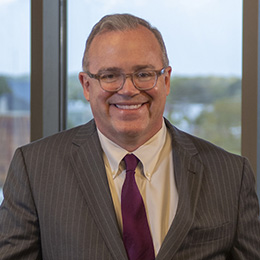
Dr. Robert Findling is Chair of the Department of Psychiatry at the Virginia Commonwealth University School of Medicine. Here he discusses recent advances in pediatric mental health, including his own research on aggression and schizophrenia in young people. Dr. Findling also shares his thoughts on the crisis of teen suicide, the lingering impact of COVID-19 on children’s mental health, and the need for early and collaborative interventions.
00:00 Introduction
00:46 Clinical and Research Journey
02:56 Aggression with impulsivity and reactivity (AIR)
06:48 Precision Pediatric Psychiatry
15:34 Schizophrenia
20:31 What Kids Need to Thrive
23:10 Teen Suicide
25:09 Role of Schools and Primary Care
30:58 Loneliness Epidemic Among Children
32:32 Improving Access to Pediatric Mental Health Care
40:00 Bipolar Disorder
43:24 Future Research and Hope for Young Patients
45:11 Conclusion: Importance of Early Intervention
SEASON 2, EPISODE 6: MARCH 05, 2024
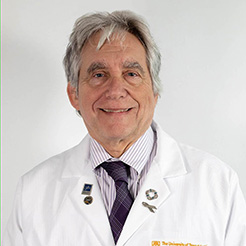
Dr. Charles Nemeroff is Chair of the Department of Psychiatry and Behavioral Sciences at the University of Texas-Austin’s Dell Medical School. He is also co-director of the Center for Psychedelic Research and Therapy, and director of the Institute for Early Life Adversity Research. His research is focused on the pathophysiology of mood and anxiety disorders with a focus on the role of child abuse and neglect as a major risk factor.
00:00 Introduction
00:52 Dr. Nemeroff’s Research Journey
01:55 Childhood Maltreatment as Risk Factor
04:53 Advances and Challenges in Precision Psychiatry
07:33 Psychedelic Medicine (incl. blinding issues and potential adverse events)
20:50 How Psychedelics Disrupt the “Circle of Hell”
30:00 Psilocybin as Potential Treatment for Anorexia Nervosa
38:32 Screening for Childhood Maltreatment
41:30 Transcranial Magnetic Stimulation (TMS)
44:14 Focused Ultrasound
46:32 Prescribing MAOIs
49:34 Conclusion
SEASON 2, EPISODE 5: FEBRUARY 27, 2024
Empathy (with Helen Riess, MD)
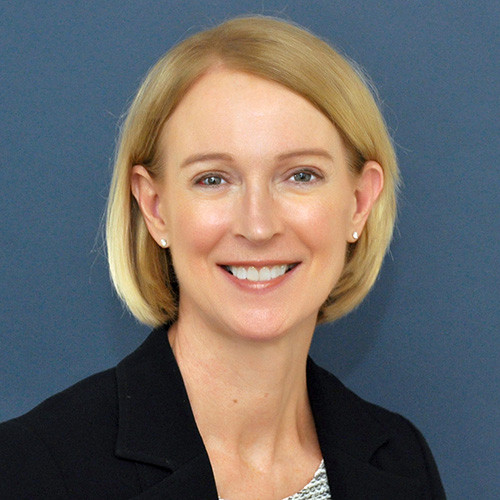
Dr. Helen Riess is Associate Clinical Professor of Psychiatry at Harvard Medical School and Director of Empathy Research and Training in the Psychotherapy Research Group at Massachusetts General Hospital. She is also Founder and Chief Executive Officer at Empathetics, a company that provides science-based empathy and interpersonal skills training for healthcare professionals. Her research focuses on improving empathy and relational skills in physicians.
00:00 Introduction
01:14 Defining Empathy
03:38 Empathy and Burnout
05:00 Care for the Caregiver
07:52 Exquisite Empathy and Burnout
09:18 Building Empathy and Avoiding Overburden
10:45 Developing Boundaries in Clinical Practice
11:45 Training and Teaching Empathy
13:42 Model for Recognizing Emotion in Others
15:11 Becoming Emotion Detectives
19:31 Leadership’s Role in Creating Supportive Workplaces
23:22 Benefits of Empathy Training
29:07 Technology and Empathy Training
34:18 Research on MDMA-Assisted Psychotherapy
37:43 Building Empathy and Compassion
40:07 Taking Small Steps Towards Empathy
42:32 Resources for Building Empathy
43:28 Future of Empathy Training
The Empathy Effect (Dr. Riess’s book)
The Power of Empathy (TEDx Talk)
SEASON 2, EPISODE 4: FEBRUARY 20, 2024
Obsessive-Compulsive Disorder (with Christopher Pittenger, MD, PhD)

Dr. Christopher Pittenger is a Professor of Psychiatry at the Yale School of Medicine and Director of the Yale OCD Research Clinic. In this episode, he discusses the neurobiology, symptomology, and treatment of Obsessive-Compulsive Disorder (OCD), including potential new treatments such as psychedelics, neurofeedback, glutamate modulators, and transcranial magnetic stimulation (TMS).
00:00 Introduction
00:41 Why is OCD Underdiagnosed?
02:19 Impact of OCD on Individuals
03:40 Taboo Nature of OCD Thoughts
06:10 Biomarkers
08:06 Neurobiology
14:20 Serotonin
16:48 Heterogeneity of OCD
24:00 Glutamate Modulators
29:33 Ketamine
33:13 Psilocybin
38:23 Neurofeedback
44:01 Transcranial Magnetic Stimulation (TMS)
47:22 Relationship Between Depression and OCD
50:24 Future of OCD Treatment
SEASON 2, EPISODE 3: FEBRUARY 13, 2024
Meditation (with Richard Davidson, PhD)

Dr. Richard Davidson is the William James and Vilas Professor of Psychology and Psychiatry at the University of Wisconsin–Madison and Founder & Director of the Center for Healthy Minds. In this episode, he discusses the current state of research on mindfulness and meditation as mental health interventions.
00:00 Introduction
02:15 Focus areas in current research
04:37 Well-being as a universal intervention
06:21 Beyond mindfulness: other forms of meditation
07:24 Four pillars of well-being: awareness, connection, insight, and purpose
13:04 Healthy Minds Program and the impact of short daily meditation practices
17:05 Comparison of Mindfulness-Based Stress Reduction (MBSR) and the Healthy Minds Program, focusing on accessibility and time commitment
20:55 The potential for structural changes in the brain with meditation
26:24 Integrating mindfulness and meditation into clinical practice
28:06 Micro-supports for everyday well-being
33:27 Mindfulness and social connection
35:06 Future research directions, including the concept of a flourishing city
SEASON 2, EPISODE 2: FEBRUARY 06, 2024
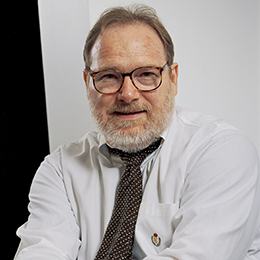
Dr. Ronald Kessler is the McNeil Family Professor of Health Care Policy at Harvard Medical School. His groundbreaking work on the social determinants of mental health, studied from an epidemiological perspective, has made him the most widely cited psychiatric researcher in the world. In this wide-ranging conversation, he talks about precision psychiatry’s enormous potential and incremental development, delving into his own efforts to better identify at-risk patients and predict treatment efficacy. Dr. Kessler stresses the need for better data and bigger studies, and envisions a future of AI-supported clinicians.
00:00 Introduction
00:53 Dr. Kessler’s Journey to Precision Psychiatry
02:45 The Importance of Data
04:14 Risk Factors and Treatment Optimization
10:42 Successes and Challenges
13:23 The Importance of Baseline Information
23:46 Machine Learning in Veterans Health
24:27 Determining Suicide Risk
25:35 Interventions and Cost-Effectiveness
26:16 Esketamine Trials and Response Prediction
27:07 Risk Models and Comparative Risk Models
27:15 Insomnia Treatment in Military Personnel
29:36 Cost-Benefit Analyses
35:45 AI in Medicine and Patient Response
42:21 Future of Precision Psychiatry
45:51 Closing Remarks
SEASON 2, EPISODE 1: JANUARY 30, 2024
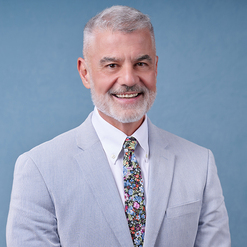
Dr. Petros Levounis is President of the American Psychiatric Association and a leader in addiction research. He joins host Thea Gallagher, PsyD, to talk about the latest in addiction medicine, the state of the opioid crisis, the growing problem of technology addiction, and the promise and risks of psychedelic medicine. He also shares his hopes for the future of psychiatry, including better integration of diagnoses, treatments, and outcomes for people with mental health disorders.
00:00 Introduction to NYU Langone Insights on Psychiatry
00:16 Dr. Levounis’s role and priorities as APA president
00:46 The State of Addiction Medicine
02:12 Neurobiology of Addiction
03:37 Interplay Between Mental Health and Addiction
06:03 Potential and Challenges of Psychedelic Medicine
08:37 Cannabis and Tech Addictions
10:11 Addressing the Opioid Crisis: Strategies and Solutions
15:28 Addressing Technological Addictions
28:55 The Future of Psychiatry: Goals and Aspirations
35:47 Conclusion and Final Thoughts




